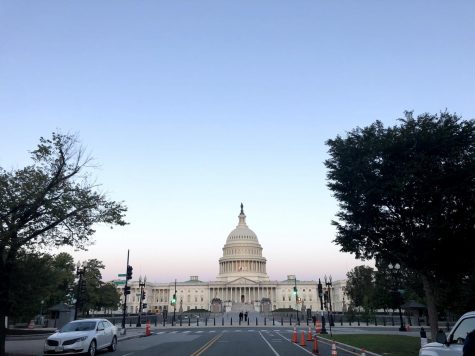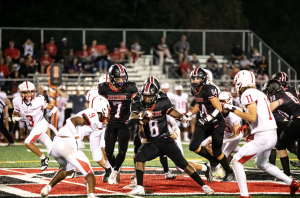The Capitol riot didn’t come out of nowhere
January 12, 2021

“This isn’t who we are.”
“This is not American.”
These are the kind of statements that have been echoed this past week following the desecration of the U.S. Capitol by pro-Trump insurrectionists. As stories and images flooded our newsfeed, we stood back in helpless incredulity. But we need to understand that what happened on Wednesday was not completely unprecedented. Rather, it was the latest chapter in a long history of anti-democratic actions.
This was not America’s first violent rejection of election results. In 1860, the Republican ticket of Abraham Lincoln and Hannibal Hamlin emerged triumphant. Before Lincoln’s inauguration, the legislatures of seven states seceded rather than accept the transfer of power. The result was the bloodiest war in American history.
This was not the first attempt to overthrow votes from minorities with violence. In Wilmington, North Carolina in 1898, an alliance of African-Americans and white progressives elected a government which included Black leaders. White supremacists gathered and invaded the city, killing dozens of Black residents and overthrowing the elected government. Many of the Black residents that remained fled and white supremacists took control of the state, solidifying Black voter suppression for decades to come.
This was not the first time a noose was used to intimidate. The white insurrectionists that strung up a noose before the Capitol building are the literal and figurative descendants of the people who terrorized Black communities in the past. They are descendants of those that assaulted Black self-determination, and to be surprised that they would violently oppose the results of an election that demonstrated the enfranchisement and voting power of Black voters is naive.
Our collective surprise towards the events on Wednesday is unwarranted. Jelani Cobb, a historian and journalist with the New Yorker, explained last September that violence would be a predictable outcome of this year’s election. He noted that insurrection and election violence is often recorded as “a static record of the past” but that “historians tend to look at them the way that meteorologists look at hurricanes: as a predictable outcome when a number of recognizable variables align in familiar ways.” Trump’s unrivaled ability to sow conflict and violate the norms of democracy meant a hurricane was all but inevitable.
Trump plays to his base of white conservatives. They are angry that their long-standing supremacy over all other groups is crumbling and Trump normalizes their anger. He instigates aggression and violence in a group that already has decades of pent up anger. In 2018 Cesar Sayoc, dubbed by his lawyers as “a Donald Trump super-fan,” mailed pipe bombs to President Obama, Clinton, and fourteen others he believed had treated Trump unfairly. In 2019 Patrick Crusius posted an anti-immigrant manifesto that echoed Donald Trump’s rhetoric during his campaign, and then proceeded to fatally shoot twenty-three people in El Paso, Texas. Last May, an armed militia entered the Michigan Capitol to protest the state’s stay-at-home order. This came only a couple weeks after, Trump had tweeted, “LIBERATE MICHIGAN!” Right before the Capitol riot Trump proclaimed to his supporters that “You will never take back our country with weakness,” and encouraged them to march to the Capitol to support objections to certification of the vote. A fringe of Trump supporters have shown they will follow his guidance blindly. This was no exception.
When President-elect Joe Biden spoke on Wednesday, he fed our patriotic ego claiming that “the scenes of chaos in the Capitol do not reflect true America, do not represent who we are.” As much as I want to agree with him and contend that America is a shining example of democracy, the truth of the matter is that this is who we are. To deny it is to deny that we are a country born and forged by racial oppression, violence, and insurrection.
When the Senate reconvened Wednesday night, Senator Mitt Romney stated that “the burden and duty of leadership is to tell the truth.” He was referencing the need to confirm the results of the election but his assertion is relevant to the riots as well. The truth requires us to acknowledge that the current moment is not as isolated an incident as we would wish, and only after recognizing this can we try to prevent it from happening again. The riots at the Capitol are who we are, but they are not what we always have to be.
Opinion articles in The Lasso reflect the opinion of the writer(s). They do not necessarily reflect the opinion of the Lasso Editorial Board or of George Mason High School.









Ms Mahony • Jan 17, 2021 at 8:40 AM
Nice article. We all need to learn more about this history.